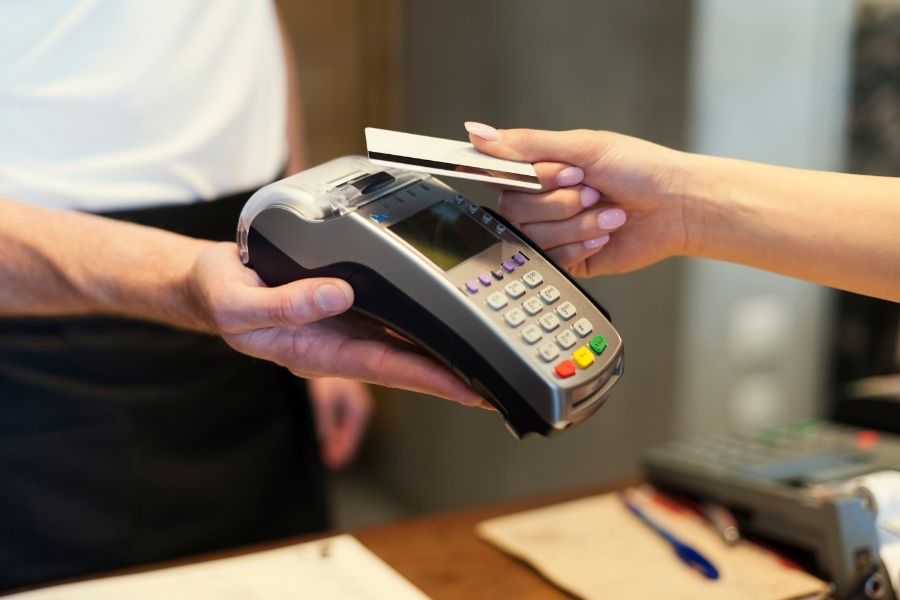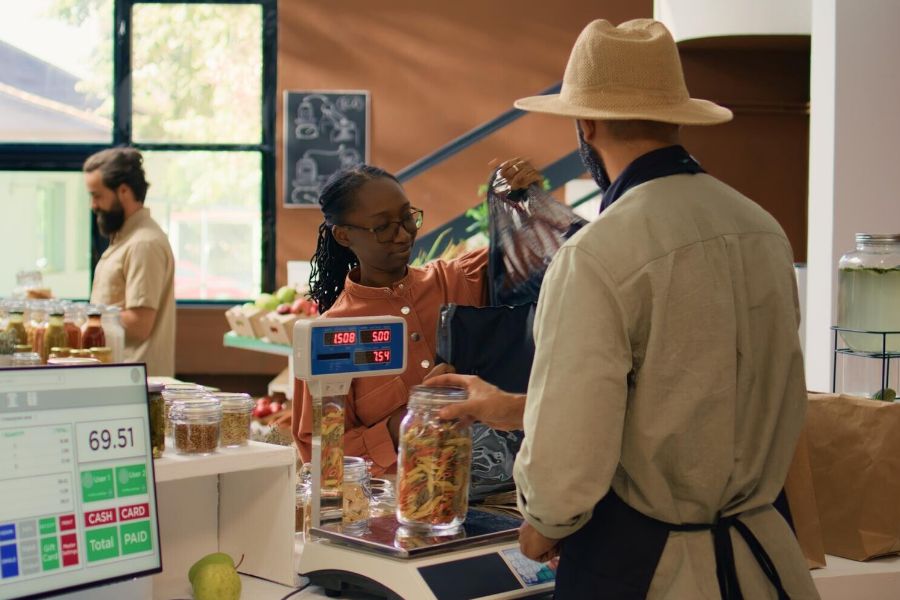ConnectPOS and Epos Now will be repeated recommendations from fellow retailers if you’re an SME looking for reasonable cloud POS software. With a user-friendly interface and essential functions, these apps are excellent for starting your omnichannel journey.
Despite the similarities between ConnectPOS and ePOS Now, they possess unique charms to attract customers. This article will introduce you to these two great POS software and help you choose the best option.
Have you met ConnectPOS and Epos Now?
When searching for ePOS on Google, you will receive millions of results about electronic POS systems. Among those queries, Epos Now catches retailers’ eyes.
Established in 2011, Epos Now has powered thousands of businesses in 74 countries. Naming itself the “global powerhouse for payments and POS systems for businesses of all sizes and types,” Epos Now delivers a POS system fitting businesses of all shapes and sizes with a strong focus on retail SMEs.
On the other hand, ConnectPOS offers a comprehensive omnichannel solution covering two major aspects: multi-channel selling and inventory management. As a globally recognized system, ConnectPOS is delighted to be the power behind the success of ASUS, SCG, and Lapaire.
Combining the users of the two platforms, ConnectPOS and Epos Now are serving nearly 100,000 omnichannel businesses around the globe. And the numbers continue to grow.
The required features to determine an outstanding omnichannel solution
To achieve popularity among SMEs, ConnectPOS and Epos Now share significant characteristics of ideal POS software.
The first required function is seamless data synchronization. When going omnichannel, businesses must connect data across sales channels, including web stores, brick-and-mortar locations, and warehouses. In addition, it’s a challenge for solution providers since each company chooses a different eCommerce platform to power its online presence. Some of the well-known names are Magento, Shopify, and WooCommerce. Yet, more and more brands base their online site on advanced platforms such as headless eCommerce or custom-made options.
ConnectPOS and Epos Now gain customers’ love by ensuring real-time data connection across multiple touchpoints. Both apps can integrate with various eCommerce platforms, thus synching online and offline data in a quick, accurate, and secure protocol.
Further enhancing omnichannel potential, ConnectPOS and Epos Now can work on multiple devices, such as tablets and PCs. For instance, ConnectPOS transformed itself into a native mobile app that users can download online. Both systems are compatible with iOS, Android, and Windows.
You can also connect them smoothly with standard POS hardware like a barcode scanner, card swiper, or cash register.
Next, the ability to integrate with third-party add-ons is crucial for future business expansion. Understanding this demand, ConnectPOS and Epos Now open their apps to numerous integrations and supporting systems. These include payment gateways, CRM, loyalty programs, and accounting software.
Furthermore, both share basic features to ensure productive omnichannel operations:
- Click and Collect
- Online and offline order history
- Bundle products
- Sync thousands of products across online and offline platforms
- Employee management
- Sales Analysis
- Stocktake and inventory search
- Auto purchase orders
- Redeem online loyalty points in-store
- Customers profile
Finally, ConnectPOS and Epos Now promise 24/7 global customer service for their users. With a decade of experience, their teams are ready to solve even the smallest details with professionalism.
What sets ConnectPOS and Epos Now apart?
Although sharing significant similarities, ConnectPOS and Epos Now have unique approaches, making them special and memorable in retailers’ minds. Below are highlighted differences that can help you find the most suitable solution for your business.
Serving industries
Despite being famous for SMEs, ConnectPOS and Epos Now have developed in two entirely distinct directions regarding their target audiences. ConnectPOS leans toward serving large international corporations with multiple locations, while Epos Now concentrates on small and medium-sized brands.
Another difference lies in their industries. Epos Now is designed to help retail and hospitality businesses (e.g., restaurants and gyms). On the other hand, ConnectPOS creates custom functions to support specific areas like firearms and CBD businesses.
Advanced omnichannel features
Each software has designed special functions to improve the efficiency of its users. Some notable distinctive features are listed in the table below.
| ConnectPOS | Epos Now |
| Group pricing and discount | Barcode management |
| Reward points and store credit | Best-selling items in reports |
| Gift cards | Customizable table plans for restaurants |
| Self-checkout | Epos Now Order and Pay |
| Customer facing display | Floor plans management |
| Order fulfillment, back orders, and pre-orders | Abandoned cart notifications |
| Refund and Exchange | |
| Offline sales |
As you can see, ConnectPOS puts more effort into refining its retail POS software than Epos Now.
Personalization
The article mentioned the flexibility of ConnectPOS and Epos Now, one of the strongest points to draw users’ attention. However, ConnectPOS has a slight edge over Epos Now as it already has built-in custom features (e.g., adjustable invoices) as well as on-demand personalization.
For example, ConnectPOS has gained the trust of giant worldwide enterprises by customizing special orders and integrating with local payment gateways for an easy and user-friendly shopping experience.
In the case of Epos Now, it has developed a custom payment gateway to strengthen its omnichannel power. This gateway streamlines the selling process for those using the Epos Now system. Inevitably, there are fees to use this method for every card type per transaction.
Pricing plans
The biggest difference between these two POS providers is how they charge users. ConnectPOS follows a subscription model with separate packages for SMEs and enterprises. From $39/month/register, business owners can choose a suitable plan that fits their current needs.
In contrast, Epos Now introduces a POS Pro Solution that costs $139. This one-time payment includes the following:
- Pro-C15 terminal
- Metal cash drawer
- A thermal receipt printer
- Access to POS software
- Installation, set-up, and support
However, there are extra fees if you require particular features such as quote management or advanced inventory control. You can find these common features in ConnectPOS pricing plans.
To conclude,
Although sharing strong similarities, ConnectPOS and Epos Now are developed to serve different retailers’ segments. While Epos Now focuses on SMEs, ConnectPOS can satisfy both startups and enterprises. Thus, you can choose the right system for your business needs.
If you choose to take the next step with ConnectPOS, let’s talk to the team ASAP! ConnectPOS is ready to elevate your business to new heights with our robust omnichannel solution.
►►► See our products: Magento POS, BigCommerce POS, Shopify POS, Woocommerce POS, NetSuite POS, Commercetools POS, Custom POS, White label POS, Customer Experience Solution and Next-Gen POS




